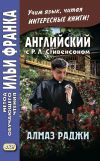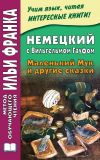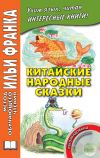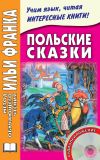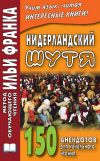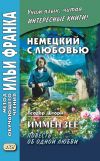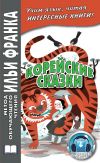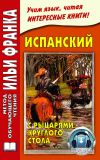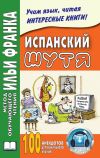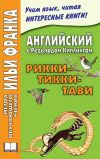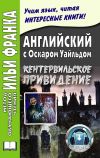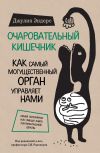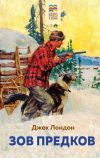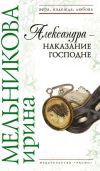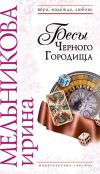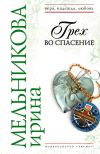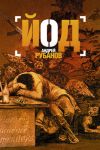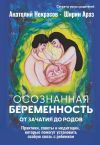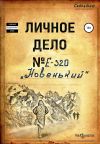
Автор книги: Энтони Хоуп
Жанр: Иностранные языки, Наука и Образование
Возрастные ограничения: 16+
сообщить о неприемлемом содержимом
“But what will you tell him?”
“That you never came – that you saw through the trick.”
I took her hand and kissed it.
“Madame,” said I, “you have served the King well tonight (мадам, сегодня вы хорошо послужили королю; tonight – сегодня вечером/ночью). Where is he in the Castle (где его /держат/ в замке)?”
She sank her voice to a fearful whisper (она понизила голос до испуганного шепота; to sink – тонуть, утопать; понижать/ся/, опускать/ся/). I listened eagerly (я напряженно слушал; eager – страстно стремящийся /к чему-л./; напряженный).
“Across the drawbridge you come to a heavy door (/перейдя/ через мост, вы подойдете к тяжелой = массивной двери); behind that lies (за нею находится…) – Hark! What’s that (слушайте! что это)?”
There were steps outside (снаружи послышались шаги).
“They’re coming! They’re too soon! Heavens! they’re too soon (они идут! они слишком рано! о, Боже)!” and she turned pale as death (и она стала бледной как смерть).
“They seem to me,” said I, “to be in the nick of time (мне кажется, они как раз вовремя; in the nick of time – как раз вовремя; nick – зарубка, засечка; точный момент).”
“Close your lantern (прикройте свой фонарь). See, there’s a chink in the door (смотрите, в двери есть щель). Can you see them (вы их видите: «вы можете их видеть»)?”
I put my eye to the chink (я приложил глаз к щели). On the lowest step I saw three dim figures (на нижней ступеньке я увидел три неясные фигуры). I cocked my revolver (я взвел курок на револьвере; to cock – поднимать; взводить /курок/). Antoinette hastily laid her hand on mine (Антуанетта поспешно положила свою руку на мою).
“You may kill one,” said she. “But what then (вы можете убить одного, – сказала она, – но что потом)?”
A voice came from outside – a voice that spoke perfect English (снаружи донесся голос – голос, прекрасно говоривший по-английски).

“Madame,” said I, “you have served the King well tonight. Where is he in the Castle?”
She sank her voice to a fearful whisper. I listened eagerly.
“Across the drawbridge you come to a heavy door; behind that lies – Hark! What’s that?”
There were steps outside.
“They’re coming! They’re too soon! Heavens! they’re too soon!” and she turned pale as death.
“They seem to me,” said I, “to be in the nick of time.”
“Close your lantern. See, there’s a chink in the door. Can you see them?”
I put my eye to the chink. On the lowest step I saw three dim figures. I cocked my revolver. Antoinette hastily laid her hand on mine.
“You may kill one,” said she. “But what then?”
A voice came from outside – a voice that spoke perfect English.
“Mr. Rassendyll,” it said (мистер Рассендил, – сказал = позвал он).
I made no answer (я не ответил).
“We want to talk to you (мы хотим поговорить с вами). Will you promise not to shoot till we’ve done (обещаете не стрелять, пока мы не закончим)?”
“Have I the pleasure of addressing Mr. Detchard (я имею удовольствие обращаться к мистеру Дэтчарду; to address – адресовать, направлять; обращаться /к кому-л./)?” I said.
“Never mind names (имена не важны).”
“Then let mine alone (тогда и мое оставьте в покое; to let alone – оставлять в покое).”
“All right, sire (хорошо, сир). I’ve an offer for you (у меня есть к вам предложение).”
I still had my eye to the chink (я все еще смотрел в щель: «держал глаз у щели»). The three had mounted two steps more (эти трое поднялись еще на две ступеньки); three revolvers pointed full at the door (три револьвера были нацелены прямо на дверь).
“Will you let us in (вы позволите нам войти)? We pledge our honour to observe the truce (даем слово соблюдать перемирие; to pledge one’s honour – ручаться, давать слово).”
“Don’t trust them,” whispered Antoinette (не верьте им, – прошептала Антуанетта).
“We can speak through the door (мы можем поговорить через дверь),” said I.
“But you might open it and fire,” objected Detchard (но вы можете открыть ее и выстрелить, – возразил Дэтчард); “and though we should finish you, you might finish one of us (и хотя /тогда/ мы прикончим вас, вы, возможно, прикончите одного из нас; to finish – заканчивать, завершать; прикончить, убить /разг./). Will you give your honour not to fire while we talk (вы дадите слово не стрелять, пока мы будем разговаривать; to give honour – давать честное слово)?”
“Don’t trust them,” whispered Antoinette again (не верьте им, – снова прошептала Антуанетта).

“Mr. Rassendyll,” it said.
I made no answer.
“We want to talk to you. Will you promise not to shoot till we’ve done?”
“Have I the pleasure of addressing Mr. Detchard?” I said.
“Never mind names.”
“Then let mine alone.”
“All right, sire. I’ve an offer for you.”
I still had my eye to the chink. The three had mounted two steps more; three revolvers pointed full at the door.
“Will you let us in? We pledge our honour to observe the truce.”
“Don’t trust them,” whispered Antoinette.
“We can speak through the door,” said I.
“But you might open it and fire,” objected Detchard; “and though we should finish you, you might finish one of us. Will you give your honour not to fire while we talk?”
“Don’t trust them,” whispered Antoinette again.
A sudden idea struck me (вдруг у меня созрел план: «внезапно меня осенила мысль»; idea – идея, мысль; план, замысел; to strike – ударять, бить; приходить в голову). I considered it for a moment (мгновенье я обдумывал его). It seemed feasible (он казался осуществимым).
“I give my honour not to fire before you do (даю слово не стрелять, прежде чем вы /не начнете/),” said I; “but I won’t let you in (но я не позволю вам войти). Stand outside and talk (стойте снаружи и говорите).”
“That’s sensible (это благоразумно),” he said.
The three mounted the last step (те трое поднялись на последнюю ступеньку), and stood just outside the door (и встали сразу за дверью). I laid my ear to the chink (я приложил ухо к щели). I could hear no words, but Detchard’s head was close (я не мог расслышать ни слова, но голова Дэтчарда находилась рядом) to that of the taller of his companions (De Gautet, I guessed) (с головой более высокого из его товарищей (Де Готе, как я догадался)).
“H’m! Private communications,” thought I (хм! частная беседа, – подумал я). Then I said aloud (потом я сказал вслух):
“Well, gentlemen, what’s the offer (ну, джентльмены, что за предложение)?”
“A safe-conduct to the frontier, and fifty thousand pounds English (гарантия неприкосновенности до границы и пятьдесят тысяч английских фунтов).”
“No, no,” whispered Antoinette in the lowest of whispers (нет-нет, – произнесла Антуанетта совсем тихо: «самым тихим шепотом»). “They are treacherous (они /очень/ коварны; treacherous – предательский, вероломный; коварный).”
“That seems handsome,” said I, reconnoitring through the chink (звучит неплохо: «это кажется красивым», – сказал я, сквозь щель изучая противников; to reconnoitre – производить разведку, рекогносцировку). They were all close together, just outside the door now (они стояли близко друг к другу, теперь как раз прямо за дверью).

A sudden idea struck me. I considered it for a moment. It seemed feasible.
“I give my honour not to fire before you do,” said I; “but I won’t let you in. Stand outside and talk.”
“That’s sensible,” he said.
The three mounted the last step, and stood just outside the door. I laid my ear to the chink. I could hear no words, but Detchard’s head was close to that of the taller of his companions (De Gautet, I guessed).
“H’m! Private communications,” thought I. Then I said aloud:
“Well, gentlemen, what’s the offer?”
“A safe-conduct to the frontier, and fifty thousand pounds English.”
“No, no,” whispered Antoinette in the lowest of whispers. “They are treacherous.”
“That seems handsome,” said I, reconnoitring through the chink. They were all close together, just outside the door now.
I had probed the hearts of the ruffians (я уже разгадал намерения негодяев; to probe – зондировать; прощупывать; heart – сердце; суть, сущность), and I did not need Antoinette’s warning (и в предостережении Антуанетты не нуждался). They meant to “rush” me as soon as I was engaged in talk (они намеревались броситься на меня, как только я вступлю в переговоры; to engage – нанимать; привлекать, вовлекать).
“Give me a minute to consider,” said I (дайте мне минуту подумать, – сказал я; to consider – рассматривать, обсуждать; обдумывать); and I thought I heard a laugh outside (и мне показалось, что снаружи послышался смешок).
I turned to Antoinette (я повернулся к Антуанетте).
“Stand up close to the wall, out of the line of fire from the door,” I whispered (встаньте вплотную к стене за линией огня /со стороны/ двери, – прошептал я).
“What are you going to do?” she asked in fright (что вы собираетесь делать? – спросила она в испуге).
“You’ll see (увидите),” said I.
I took up the little iron table (я поднял маленький железный столик). It was not very heavy for a man of my strength (он был не очень тяжел для человека моих сил), and I held it by the legs (и я держал его за ножки). The top, protruding in front of me (крышка, торчащая передо мной = которую я выставил перед собой; to protrude – высовывать/ся/; выдаваться, торчать), made a complete screen for my head and body (образовывала полное прикрытие для моей головы и тела = полностью прикрывала мои голову и тело; screen – ширма, экран; защита, прикрытие). I fastened my closed lantern to my belt (я прикрепил закрытый фонарь к поясу) and put my revolver in a handy pocket (и положил револьвер в удобный карман). Suddenly I saw the door move ever so slightly (вдруг я увидел, что дверь приоткрылась: «сдвинулась» на самую малость; ever – когда-либо; очень, чрезвычайно /эмоц. – усил./) – perhaps it was the wind, perhaps it was a hand trying it outside (возможно, это был ветер, а может, чья-то рука пробовала /открыть/ ее снаружи).

I had probed the hearts of the ruffians, and I did not need Antoinette’s warning. They meant to “rush” me as soon as I was engaged in talk.
“Give me a minute to consider,” said I; and I thought I heard a laugh outside.
I turned to Antoinette.
“Stand up close to the wall, out of the line of fire from the door,” I whispered.
“What are you going to do?” she asked in fright.
“You’ll see,” said I.
I took up the little iron table. It was not very heavy for a man of my strength, and I held it by the legs. The top, protruding in front of me, made a complete screen for my head and body. I fastened my closed lantern to my belt and put my revolver in a handy pocket. Suddenly I saw the door move ever so slightly – perhaps it was the wind, perhaps it was a hand trying it outside.
I drew back as far as I could from the door (я отошел от двери как можно дальше; to draw back – отступать, подаваться назад), holding the table in the position that I have described (удерживая столик в том положении, о котором я упомянул: «которое я описал»). Then I called out (потом крикнул):
“Gentlemen, I accept your offer, relying on your honour (джентльмены, я принимаю ваше предложение, полагаясь на ваше слово). If you will open the door (если бы вы открыли дверь; will /зд./ – выражает приглашение в вежливой форме) – ”
“Open it yourself,” said Detchard (откройте ее сами, – сказал Дэтчард).
“It opens outwards (она открывается наружу),” said I. “Stand back a little, gentlemen, or I shall hit you when I open it (встаньте немного назад, джентльмены, иначе я ударю вас /дверью/, когда буду открывать ее).”
I went and fumbled with the latch (я подошел и побряцал щеколдой; to fumble – нащупывать, шарить; вертеть в руках, теребить). Then I stole back to my place on tiptoe (затем на цыпочках прокрался назад на свое место; to steal – воровать, красть; красться, прокрадываться).
“I can’t open it!” I cried (я не могу открыть ее, – крикнул я). “The latch has caught (щеколда застряла; to catch – схватить, поймать; зацепить/ся/).”
“Tut! I’ll open it!” cried Detchard (тьфу ты! я открою ее! – крикнул Дэтчард). “Nonsense, Bersonin, why not (чепуха, Берзонин, почему бы нет)? Are you afraid of one man (вы боитесь одного человека)?”
I smiled to myself (я про себя улыбнулся). An instant later the door was flung back (мгновение спустя дверь была отброшена назад; to fling – кидать/ся/, бросать/ся/; сделать что-л. рывком). The gleam of a lantern showed me the three close together outside (в слабом свете фонаря показались три /фигуры, стоящие/ рядом снаружи), their revolvers levelled (с нацеленными револьверами; to level – выравнивать, делать ровным; нацеливать). With a shout, I charged at my utmost pace across the summer-house and through the doorway (с криком я со всех ног бросился через комнату к дверям; to charge – заряжать /оружие, аккумулятор/; нападать, набрасываться; utmost – самый отдаленный; предельный; pace – шаг; скорость, темп).

I drew back as far as I could from the door, holding the table in the position that I have described. Then I called out:
“Gentlemen, I accept your offer, relying on your honour. If you will open the door – ”
“Open it yourself,” said Detchard.
“It opens outwards,” said I. “Stand back a little, gentlemen, or I shall hit you when I open it.”
I went and fumbled with the latch. Then I stole back to my place on tiptoe.
“I can’t open it!” I cried. “The latch has caught.”
“Tut! I’ll open it!” cried Detchard. “Nonsense, Bersonin, why not? Are you afraid of one man?”
I smiled to myself. An instant later the door was flung back. The gleam of a lantern showed me the three close together outside, their revolvers levelled. With a shout, I charged at my utmost pace across the summer-house and through the doorway.
Three shots rang out and battered into my shield (раздались три выстрела, и /пули/ ударили в мой щит; to ring out – прозвучать; раздаться; to batter – колотить, дубасить). Another moment, and I leapt out and the table caught them full and square (в следующий миг я прыгнул, а стол повалился прямо на них; to catch – ловить; ударить, попасть; full – прямо, точно; square – прямо; как положено, как надо /разг./), and in a tumbling, swearing, struggling mass, they and I and that brave table (и кувыркающейся, сквернословящей, борющейся массой они, я и этот прекрасный стол; brave – храбрый, смелый; превосходный, прекрасный), rolled down the steps of the summer-house to the ground below (покатились вниз по ступенькам летнего домика на землю; below – ниже, внизу). Antoinette de Mauban shrieked (Антуанетта де Мобан вскрикнула), but I rose to my feet, laughing aloud (но я поднялся на ноги, громко смеясь).
De Gautet and Bersonin lay like men stunned (Де Готе и Берзонин лежали оглушенные: «лежали как оглушенные люди»). Detchard was under the table, but, as I rose (Дэтчард был под столом, но когда я поднялся), he pushed it from him and fired again (он оттолкнул его от себя и выстрелил снова). I raised my revolver and took a snap shot (я поднял свой револьвер и выстрелил не целясь; snap shot – выстрел навскидку); I heard him curse, and then I ran like a hare, laughing as I went (я услышал его проклятия, а потом побежал со всех ног: «как заяц», хохоча на бегу), past the summer-house and along by the wall (мимо летнего домика и /затем/ вдоль стены). I heard steps behind me, and turning round I fired again for luck (я услышал шаги позади и, обернувшись, снова выстрелил наудачу). The steps ceased (шаги стихли; to cease – прекращать/ся/, останавливать/ся/).
“Please God,” said I, “she told me the truth about the ladder (Господи, /хоть бы/ она сказала правду насчет лестницы; to please – нравиться; хотеть, изволить)!” for the wall was high and topped with iron spikes (потому что стена была высокая, утыканная железными зубцами; to top – покрывать, снабжать верхушкой; top – вершина, верх).

Three shots rang out and battered into my shield. Another moment, and I leapt out and the table caught them full and square, and in a tumbling, swearing, struggling mass, they and I and that brave table, rolled down the steps of the summer-house to the ground below. Antoinette de Mauban shrieked, but I rose to my feet, laughing aloud.
De Gautet and Bersonin lay like men stunned. Detchard was under the table, but, as I rose, he pushed it from him and fired again. I raised my revolver and took a snap shot; I heard him curse, and then I ran like a hare, laughing as I went, past the summer-house and along by the wall. I heard steps behind me, and turning round I fired again for luck. The steps ceased.
“Please God,” said I, “she told me the truth about the ladder!” for the wall was high and topped with iron spikes.
Yes, there it was (да, она = лестница была там). I was up and over in a minute (через минуту я взобрался на нее и перелез /на ту сторону/). Doubling back, I saw the horses; then I heard a shot (возвращаясь, я увидел лошадей, потом услышал выстрел; to double back – запутывать след; идти обратно по собственным следам). It was Sapt (это был Сэпт). He had heard us, and was battling and raging with the locked gate (он услышал нас = шум, который мы подняли, и яростно ломился в запертую калитку; to rage – быть в гневе, ярости, неистовствовать), hammering it and firing into the keyhole like a man possessed (колотя по ней и стреляя в замочную скважину как одержимый). He had quite forgotten that he was not to take part in the fight (он совсем забыл, что не должен принимать участие в стычке). Whereat I laughed again, and said, as I clapped him on the shoulder (от этого я снова захохотал и сказал, хлопнув его по плечу):
“Come home to bed, old chap (пойдем домой спать: «в кровать», старина). I’ve got the finest tea-table story that ever you heard (за чаем я /расскажу/ самую занимательную историю, которую вы когда-либо слышали; tea-table – чайный столик; общество за чаем; tea-table story – история, рассказываемая за чаепитием)!”
He started and cried: “You’re safe!” and wrung my hand (он вздрогнул и воскликнул: “вы целы!” и стиснул мою руку; to wring – скручивать; пожимать, сжимать). But a moment later he added (но мгновение спустя добавил):
“And what the devil are you laughing at (а над чем вы, черт возьми, смеетесь)?”
“Four gentlemen round a tea-table,” said I, laughing still (четыре джентльмена вокруг чайного столика, – сказал я, продолжая смеяться: «все еще смеясь»), for it had been uncommonly ludicrous to see (поскольку было необычайно смешно видеть) the formidable three altogether routed and scattered (ту грозную троицу, потерпевшую полное поражение; altogether – всецело, полностью; to rout – разбивать наголову, обращать в бегство; to scatter – разбрасывать, рассеивать) with no more deadly weapon than an ordinary tea-table (от оружия не более смертельного, чем обычный чайный столик).
Moreover, you will observe that I had honourably kept my word (кроме того, /как/ вы /могли/ заметить, я честно сдержал слово), and not fired till they did (и не стрелял, пока они не /начали/).

Yes, there it was. I was up and over in a minute. Doubling back, I saw the horses; then I heard a shot. It was Sapt. He had heard us, and was battling and raging with the locked gate, hammering it and firing into the keyhole like a man possessed. He had quite forgotten that he was not to take part in the fight. Whereat I laughed again, and said, as I clapped him on the shoulder:
“Come home to bed, old chap. I’ve got the finest tea-table story that ever you heard!”
He started and cried: “You’re safe!” and wrung my hand. But a moment later he added:
“And what the devil are you laughing at?”
“Four gentlemen round a tea-table,” said I, laughing still, for it had been uncommonly ludicrous to see the formidable three altogether routed and scattered with no more deadly weapon than an ordinary tea-table.
Moreover, you will observe that I had honourably kept my word, and not fired till they did.
Chapter 10
A Great Chance for a Villain
(Прекрасная возможность для негодяя; great – большой, огромный; прекрасный, отличный)
It was the custom that the Prefect of Police (было так заведено: «был такой обычай», что префект полиции) should send every afternoon a report to me (каждый день должен посылать мне доклад; afternoon – время после полудня) on the condition of the capital and the feeling of the people (о положении /дел/ в столице и настроениях среди народа; feeling – ощущение, чувство; эмоциональная атмосфера, настроение); the document included also an account of the movements of any persons (документ также включал в себя отчет о деятельности всех лиц; movement – движение, перемещение; movements – действия, поведение) whom the police had received instructions to watch (за которыми полиции надлежало наблюдать: «за которыми полиция получила указания наблюдать»). Since I had been in Strelsau (с тех пор, как я был = стал жить в Стрелсо), Sapt had been in the habit of reading the report (Сэпт имел обыкновение читать этот отчет; habit – привычка) and telling me any items of interest which it might contain (и докладывать мне обо всех интересных вопросах, которые могли в нем содержаться; item – пункт, параграф; вопрос). On the day after my adventure in the summer-house (на следующий день после моего приключения в летнем домике), he came in as I was playing a hand of écarte with Fritz von Tarlenheim (он вошел, когда я играл партию в экарте с Фрицем фон Тарленхаймом).
“The report is rather full of interest this afternoon,” he observed, sitting down (отчет сегодня весьма интересный, – заметил он, усаживаясь).
“Do you find,” I asked, “any mention of a certain fracas (вы обнаружили, – спросил я, – упоминание о каком-нибудь скандале)?”
He shook his head with a smile (он с улыбкой покачал головой).

It was the custom that the Prefect of Police should send every afternoon a report to me on the condition of the capital and the feeling of the people; the document included also an account of the movements of any persons whom the police had received instructions to watch. Since I had been in Strelsau, Sapt had been in the habit of reading the report and telling me any items of interest which it might contain. On the day after my adventure in the summer-house, he came in as I was playing a hand of écarte with Fritz von Tarlenheim.
“The report is rather full of interest this afternoon,” he observed, sitting down.
“Do you find,” I asked, “any mention of a certain fracas?”
He shook his head with a smile.
“I find this first,” he said (сначала мне попалось вот это: «я обнаружил это первым»): “ ‘His Highness the Duke of Strelsau left the city (его высочество герцог Стрелсо покинул город) (so far as it appears, suddenly), accompanied by several of his household ((кажется, внезапно) сопровождаемый несколькими из его придворных; so far as – насколько, поскольку; to appear – показываться, производить впечатление, казаться). His destination is believed to be the Castle of Zenda (предполагается, что целью его путешествия является замок Зенды), but the party travelled by road and not by train (но компания двинулась по дороге, а не поездом). MM De Gautet, Bersonin, and Detchard followed an hour later (господа Де Готе, Берзонин и Дэтчард проследовали часом позже; MM = Messieurs /сокр., фр./ – господа), the last-named carrying his arm in a sling (последний держал руку на перевязи; last-named – последний из вышеупомянутых; to carry – нести, носить; sling – ремень, канат; перевязь). The cause of his wound is not known (причина его ранения неизвестна), but it is suspected that he has fought a duel (но есть подозрения, что он дрался на дуэли; to fight), probably incidental to a love affair (вероятно, сопутствующей какой-то любовной интрижке; incidental – свойственный, присущий).’ ”
“That is remotely true,” I observed (это отдаленно /похоже/ на правду, – заметил я), very well pleased to find that I had left my mark on the fellow (будучи очень рад узнать, что оставил на этом парне свою отметину).
“Then we come to this,” pursued Sapt (теперь переходим к этому, – продолжал Сэпт): “’Madame de Mauban, whose movements have been watched according to instructions (госпожа де Мобан, за чьими действиями велось наблюдение согласно инструкции), left by train at midday (уехала поездом в полдень). She took a ticket for Dresden (она взяла билет до Дрездена) —’ ”
“It’s an old habit of hers (это ее старая привычка),” said I.

“I find this first,” he said: “ ‘His Highness the Duke of Strelsau left the city (so far as it appears, suddenly), accompanied by several of his household. His destination is believed to be the Castle of Zenda, but the party travelled by road and not by train. MM De Gautet, Bersonin, and Detchard followed an hour later, the last-named carrying his arm in a sling. The cause of his wound is not known, but it is suspected that he has fought a duel, probably incidental to a love affair.’”
“That is remotely true,” I observed, very well pleased to find that I had left my mark on the fellow.
“Then we come to this,” pursued Sapt: “’Madame de Mauban, whose movements have been watched according to instructions, left by train at midday. She took a ticket for Dresden —’ ”
“It’s an old habit of hers,” said I.
“ ‘The Dresden train stops at Zenda (дрезденский поезд останавливается в Зенде).’ An acute fellow, this (ну и сообразительный же парень; this – это; ну и ну, вот это да /эмоц. – усил./). And finally listen to this (и, наконец, послушайте вот это): ‘The state of feeling in the city is not satisfactory (настроения в городе неудовлетворительные; state – состояние, положение; feeling – чувствительность; настроение). The King is much criticized (много = часто критикуют короля)’ (you know, he’s told to be quite frank (знаете ли, говорят, что он совершенно искренен; quite – вполне, совсем; совершенно, полностью)) ‘for taking no steps about his marriage (за то, что /он/ не предпринимает никаких шагов к женитьбе). From enquiries among the entourage of the Princess Flavia (по опросам среди окружения принцессы Флавии; enquiry – наведение справок, расспрашивание), her Royal Highness is believed to be deeply offended by the remissness of his Majesty (ее королевское высочество, как полагают, глубоко обижена невниманием /со стороны/ его величества; to believe – верить; полагать, считать; remissness – небрежность, нерадение). The common people are coupling her name with that of the Duke of Strelsau (простой люд связывает ее имя с именем герцога Стрелсо; to couple – соединять; связывать, ассоциировать), and the duke gains much popularity from the suggestion (и герцог становится весьма популярным: «получает много популярности» благодаря этому предположению; suggestion – совет, предложение; предположение).’ I have caused the announcement that the King gives a ball tonight in honour of the princess to be widely diffused (я велел повсюду распространить известие, что сегодня вечером король дает бал в честь принцессы; to cause – быть причиной; заставлять, побуждать; announcement – объявление, сообщение; to diffuse – распространять), and the effect is good (и результат оказался действенным).”
“That is news to me (это новость для меня),” said I.
“Oh, the preparations are all made!” laughed Fritz (о, все приготовления уже сделаны! – засмеялся Фриц). “I’ve seen to that (я проследил за этим).”
Sapt turned to me and said, in a sharp, decisive voice (Сэпт повернулся ко мне и сказал резким, решительным тоном):
“You must make love to her tonight, you know (сегодня вечером вы должны будете ухаживать за ней, как вы понимаете).”

“ ‘The Dresden train stops at Zenda.’ An acute fellow, this. And finally listen to this: ‘The state of feeling in the city is not satisfactory. The King is much criticized’ (you know, he’s told to be quite frank) ‘for taking no steps about his marriage. From enquiries among the entourage of the Princess Flavia, her Royal Highness is believed to be deeply offended by the remissness of his Majesty. The common people are coupling her name with that of the Duke of Strelsau, and the duke gains much popularity from the suggestion.’ I have caused the announcement that the King gives a ball tonight in honour of the princess to be widely diffused, and the effect is good.”
“That is news to me,” said I.
“Oh, the preparations are all made!” laughed Fritz. “I’ve seen to that.”
Sapt turned to me and said, in a sharp, decisive voice:
“You must make love to her tonight, you know.”
“I think it is very likely I shall, if I see her alone (я думаю, скорее всего, так и сделаю, если встречусь с ней наедине; very likely – весьма вероятно),” said I. “Hang it, Sapt, you don’t suppose I find it difficult (черт возьми, Сэпт, вы же не думаете: «не предполагаете», что мне это в тягость: «что я нахожу это трудным»)?”
Fritz whistled a bar or two; then he said (Фриц просвистел пару тактов /какой-то мелодии/, потом сказал; bar – кусок, брусок; тактовая черта, такт /муз./): “You’ll find it only too easy (/напротив/, для вас это будет очень легко; only too – чрезвычайно, очень). Look here, I hate telling you this, but I must (послушайте: «взгляните сюда», мне не хочется вам этого говорить, но придется; to hate – ненавидеть; не хотеть /разг./). The Countess Helga told me (графиня Хельга рассказала мне) that the princess had become most attached to the King (что принцесса влюбилась в короля; to become – делаться, становиться; как глагол-связка для обозначения перехода в какое-л. состояние; to be attached to smb. – любить кого-л., испытывать привязанность к кому-л.; to attach – прикреплять, присоединять). Since the coronation, her feelings have undergone a marked development (со /дня/ коронации ее чувства весьма усилились: «подверглись заметному развитию»; to undergo – испытывать, переносить; подвергаться; marked – отмеченный; явный, заметный). It’s quite true that she is deeply wounded by the King’s apparent neglect (и это чистая правда, что ее глубоко ранит явное пренебрежение /со стороны/ короля).”
“Here’s a kettle of fish!” I groaned (да уж, хорошенькое дело! – простонал я; kettle of fish – запутанное, неприятное положение; kettle – чайник; котелок; fish – рыба).
“Tut, tut!” said Sapt. “I suppose you’ve made pretty speeches to a girl before now (ай-ай-ай, я полагаю, вы произносили красивые речи какой-нибудь девушке = девушкам /и/ раньше; tut – ах ты! междометие, выражающее нетерпение, недовольство)? That’s all she wants (это все, что ей = им нужно; to want – хотеть, желать; нуждаться /в чем-л./).”
